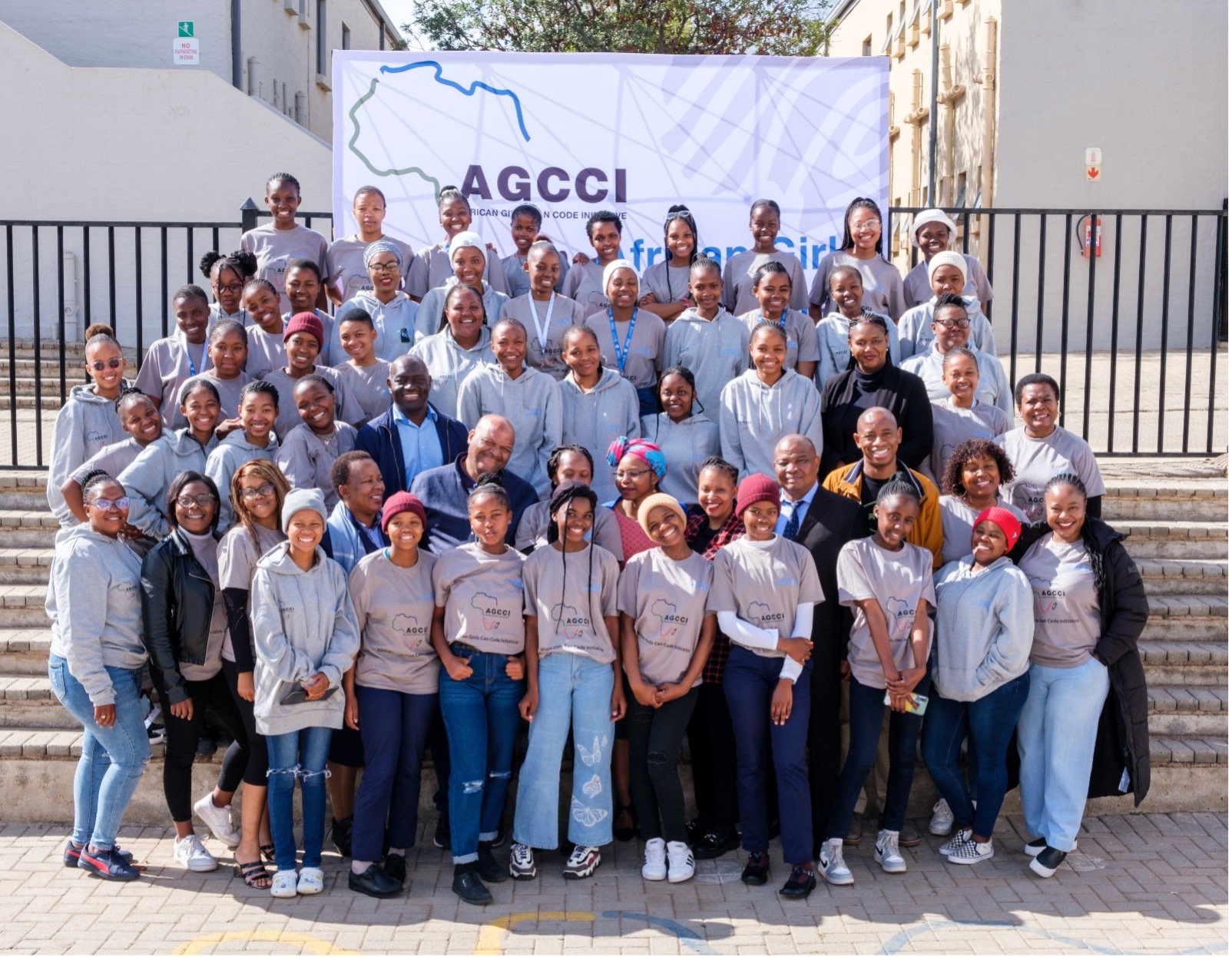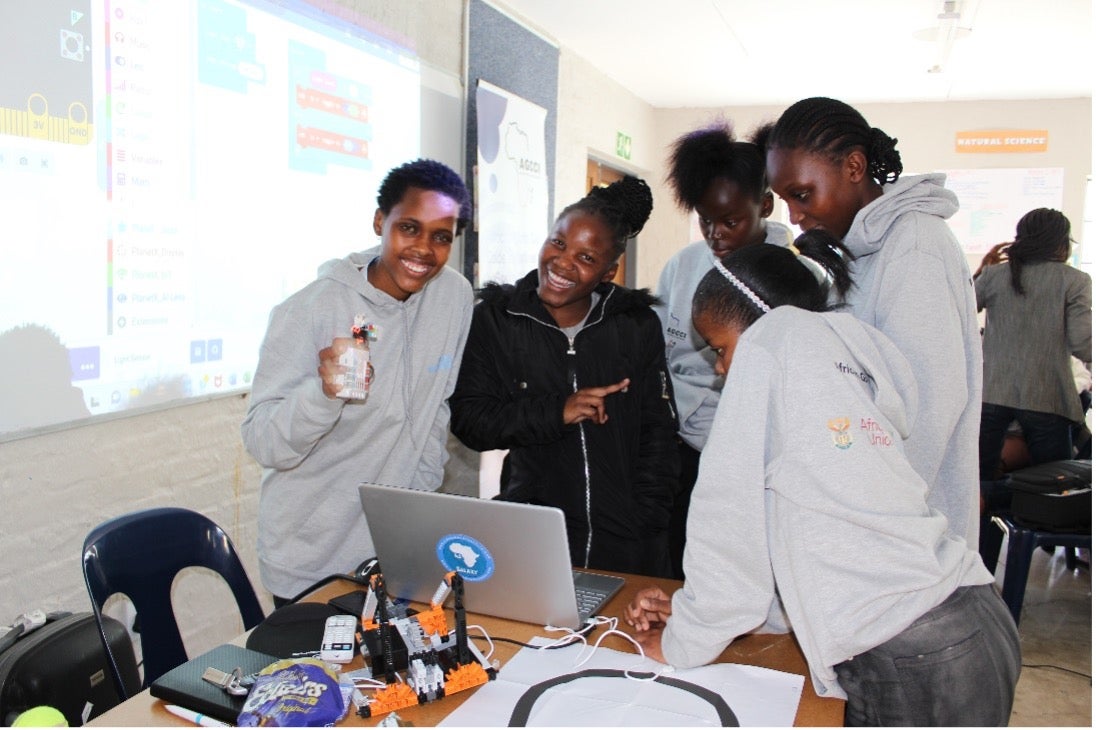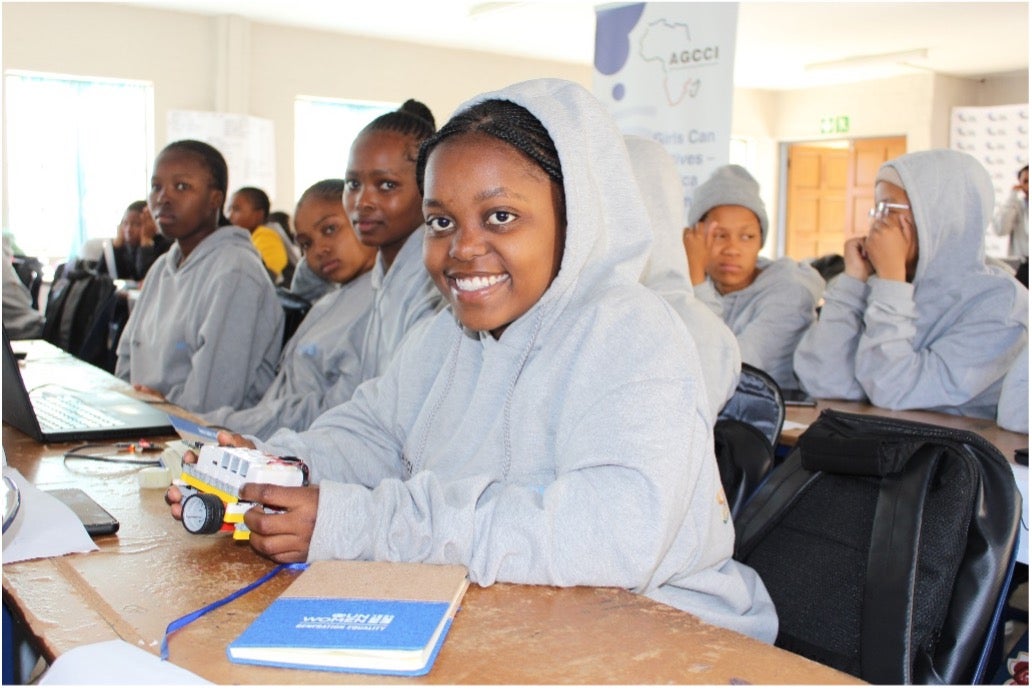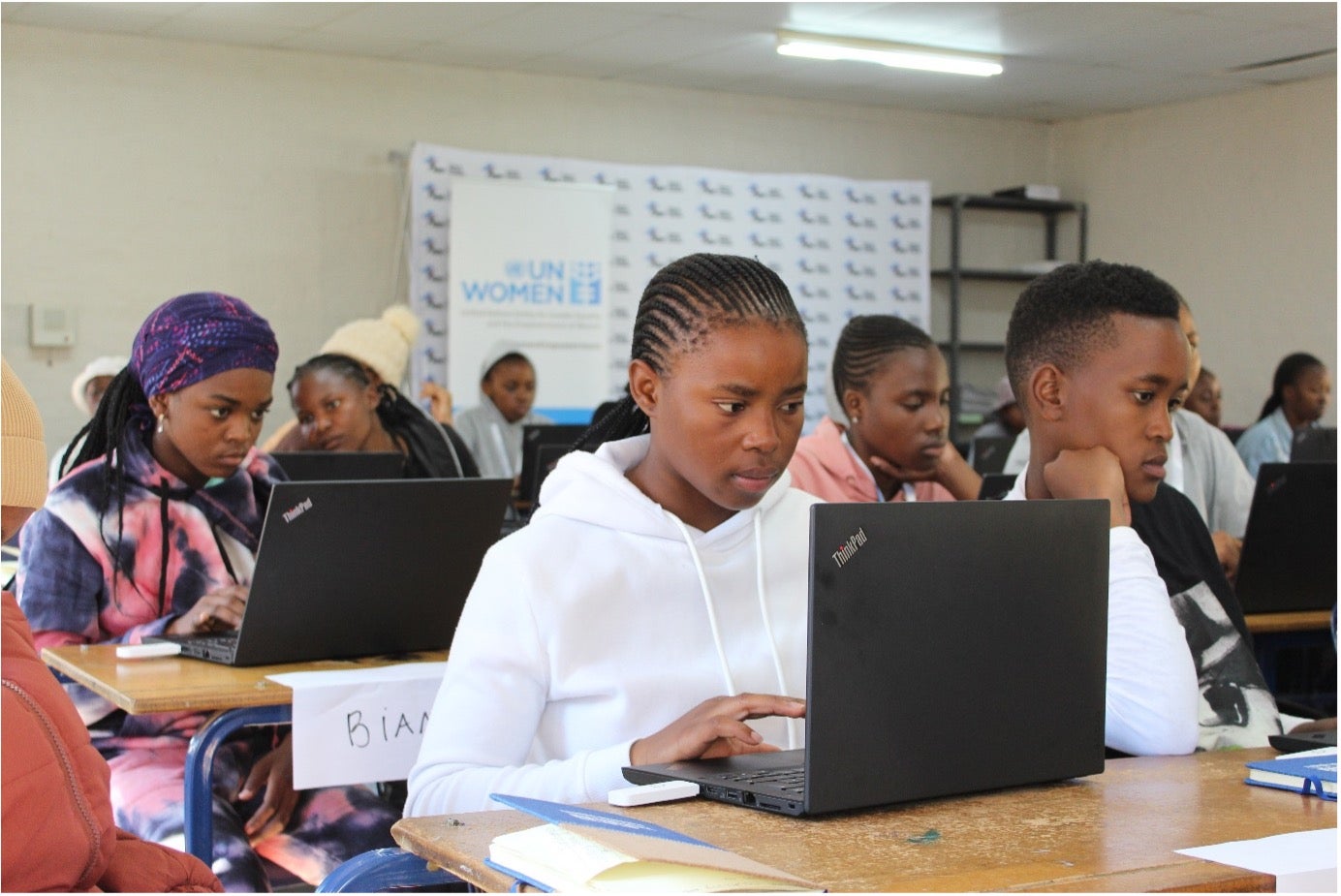Empowering South African girls for the digital age: African Girls Can Code Initiative unleashes the potential of Africa’s future tech-leaders
Date:
Over ten days in the South African city of Polokwane, 40 girls from public schools were empowered, inspired, and introduced to coding and robotics through the African Girls Can Code Initiative (AGCCI) programme on 23 June – 4 July 2023. The participants were selected from eight public schools in the inland provinces and sharpened their design thinking, problem-solving, and soft skills such as communication and self-awareness. The programme curriculum covered user interface/user experience, website development, mobile applications development, robotics, and programming.

While these girls are the first cohort of the second phase of the programme in South Africa, they are part of a larger continental initiative. Similar training programs have been and will be implemented in Kenya, Rwanda, Uganda, Tanzania, Mozambique, Burundi, Mali, Niger, the Democratic Republic of Congo, and Senegal. Together, these young girls will form a powerful network, united by their shared passion for STEM, and the hope is that they grow to break down gender barriers in the ICT sector in Africa.
In South Africa, the programme is implemented through a partnership between UN Women, the Department of Basic Education, the Department of Science, and Innovation, and is funded by the Belgian government, UN Women Finnish National Committee and tech giant, Siemens. The programme took place during South Africa’s National Youth Month, celebrated this year under the theme: “Accelerating youth economic emancipation for a sustainable future”.

According to a World Bank report, at the tertiary level, more women are enrolled in universities and have higher graduation rates than men around the world. Yet, women are significantly less likely to enroll in many (but not all) of the Science, Technology, Engineering and Mathematics (STEM) fields. According to Women in Science Africa, only 13% of graduates leaving tertiary institutions with qualifications in science, technology, engineering, and mathematics (STEM) are women in South Africa.
One of the AGCCI participants, Mohau Makhwiting (17) from Ga-Maleboho village in Limpopo, sees STEM education as giving girls a chance to change the narrative that has persisted for years. “In society, women have been expected to do the household chores, fetch water, clean after the family, and basically do everything. Where men and women work tother, men get all the credit. For example, men are paid more than women for doing the same work. That is gender inequality. STEM education gives us a chance to change that, which is why women should study more in STEM,” she said.

‘’We are excited to see the roll-out of AGCCI in South Africa because in this way we are actively contributing to encouraging a love for STEM in our girls and contributing to South Africa’s future ICT leaders. It’s one thing to talk about gender equality but it’s even more encouraging to see big stakeholders throwing their weight behind empowering young women in the early stages to take up spaces that have been predominantly male-dominated,” said Aleta Miller, Representative of UN Women in the South Africa Multi-Country Office.

One of the pillars of the AGCCI program is exposing girls to women who model well the role and leadership of women in STEM. Vuyiswa Mpofu, 17, from Ermelo in Mpumalanga said: “This was my first-time hearing about robotics and coding and when I came here, I learned that there are people, like our facilitators, who studied these things and do this work for a living. They’ve motivated me to focus on my mathematics and physical science subjects so that I can study this at tertiary level and build a career in this field. I am also excited about teaching some of the girls from my class the things I’ve learned here.
During the camp participants virtually engaged with Malerato Mphahlele, a former AGCCI participant from the programme’s first phase in 2019. She shared how the programme sparked a greater interest in STEM and fuelled her to study for a qualification in the ICT sector post-school. Mphahlele is now in the final year of her Information Systems degree at the University of Pretoria. The other positive impact that she noted is a boost in her self-confidence that has helped her navigate the spaces she finds herself in because of her studies. She also lauded the programme’s ability to connect girls in her cohort with similar interests across different African countries and as a result, she has made what she believes will be lifelong friends.
As AGCCI forges ahead, igniting passion and curiosity within the hearts of South Africa’s future ICT leaders, anticipation is building for the program’s second iteration. In South Africa during the September school holidays, 70 girl learners from coastal public schools will have the chance to experience the program, further expanding this transformative initiative's reach and impact.
African Girls Can Code Initiative (AGCCI) was commissioned by UN Women, and the International Telecommunication Union (ITU) in collaboration with the African Union Commission (AUC) Department of Health, Humanitarian Affairs and Social Development and Department of Women, Gender, and Youth Division. Phase 2 of the project is funded by the government of Belgium, Siemens and the Finnish NatCom.